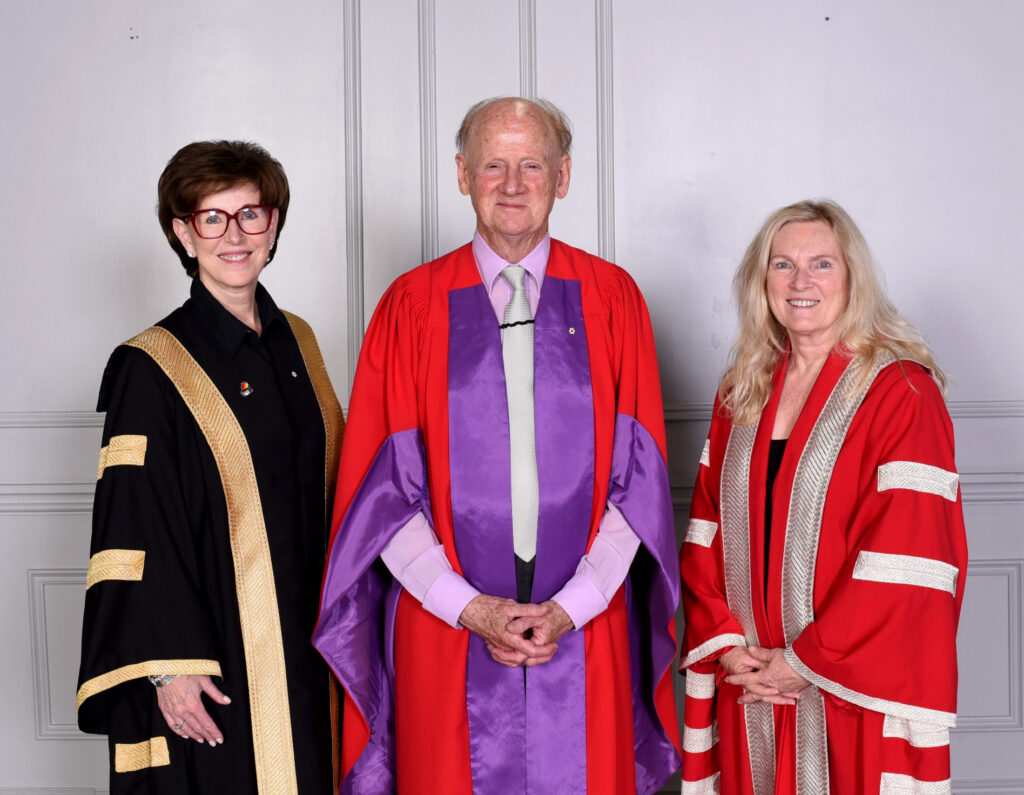[tta_listen_btn listen_text="Click to listen to this story" pause_text="Pause" resume_text="Resume" replay_text="Replay" start_text="Start" stop_text="Stop"]
John Ralston Saul, an award-winning essayist and novelist who is often referred to as one of Canada’s leading thinkers, received an honorary degree from York University during a June 19 convocation ceremony for the Faculty of Liberal Arts & Professional Studies.
“It’s amazing looking around at all the faces and thinking about the future,” Saul said after approaching the podium and taking a moment to acknowledge the number of graduands around him. Then, he explained how this large convocation ceremony is representative of a major shift in Canadian society that he believes requires addressing.
"We are the best educated society in the history of the world – Canada, in particular," he explained. "And we've gradually evolved over 100 or so years ... from a small, educated elite to the conviction that everyone has to have a serious education."
To loud cheers from the crowd, he argued that undergraduate education should be well-enough funded to eliminate the need for student loans, debts and hardship.

Saul then commended the graduands for the years of hard work that led them to this particular moment, but he cautioned that hard work of a different kind now awaited them.
“You, for better or worse, are graduating into tough times. There's no point in pretending that isn’t the case,” Saul said. "We live in an era of uncertainty where democracy is being threatened, authoritarianism is on the rise, access to education needs to be improved and engaged citizenship is lacking."
Facing the current and coming challenges, Saul stressed, will require more active participation – in society, in government, in debate – even if it might feel risky. “The problem today is that there's an atmosphere out there, including in universities, that if we're serious then we should all keep our heads down. We should be careful. We should be intellectually polite,” he said. “We don't go anywhere if we're intellectually polite all the time. That's not the nature of debate.”
To challenge, change and course-correct society, he said, requires a thick skin. “You have to go out there and be ready to knock things down and therefore be knocked back,” he urged.
Saul warned about those – especially in politics – who urge efficiency and speed. Democracy should not be fast, he said, because that speed excludes key components of the democratic process.
“What could be slower than a society which takes the time to have citizens involved in the process? A society, at its best, listens and acts on the opinions of non-experts," he said. "I would say we need to go even slower. We need more participation, more listening, much more participation, much more speaking up.”
He noted, too, that while over the past decades there have been world-changing advancements of knowledge that have led to a rise of expertise and efficiency, that should not shape our society. "The citizenry – all of us, through our democracy – we have to do the shaping.”
Saul acknowledged that wouldn’t necessarily be easy. “It's going to be hard work … to rebuild the reality of the engaged citizen who believes in the shared public good, and hard work to build new coalitions of engaged citizens,” he said. "In other words, exciting times, demanding lives, high risk. All of that to say, I envy you."
